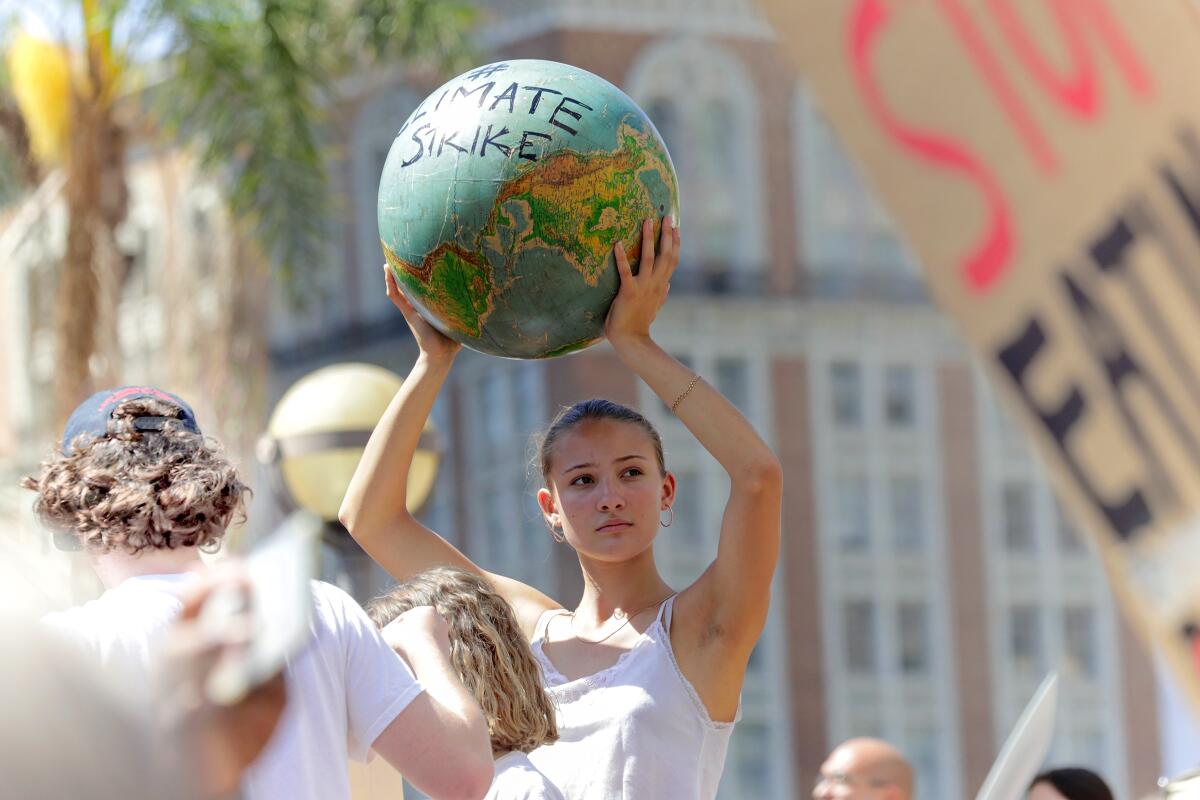Take a coronavirus break, college students, and use it to save the world

- Share via
On the theory that no crisis should go unused, let me make a not-so-modest proposal to all the college students out there who are about to be told that their campuses will be shut down for the fall semester.
Your classes are either going to be canceled, or your professors will switch to online courses in lieu of the face-to-face learning environment. If offered the latter option, let me suggest that you reject it and take a leave of absence. Online courses, in my opinion and as you probably learned this spring, are wholly inadequate replacements for the on-campus experience. Paying full tuition for less learning is a bad bargain.
So what do you do instead? I propose that you connect with as many local and far-flung friends as humanly possible, using the hashtag “UsNow.” There are maybe 20 million students in U.S. colleges and universities. If only a fraction of you opted to take a coronavirus fall break, you could rival the number of students worldwide who participated in the Global Climate Strike last September. Your goal would be to re-create a domestic version of that movement, this time linked to the pandemic-safe mobilization of your generation to produce a record turnout in the November election.
Historically, the youngest voters in presidential elections have the lowest turnout rate. Unless something happens to change that pattern, even though you have the most at stake, your generation will have only a small impact on the most consequential election in modern American history. For the sake of the climate and more, we need a tsunami in November that raises the 18-to-29-year-old vote to at least 60%, and you and your cohort possess the power and knowledge to reach that goal.
This is not a sentimental fantasy in the “If you build it, they will come” genre. We know that there is a nearly unanimous consensus in your age group that climate change is an existential threat to the survival of civilization. (SARS-CoV-2 is to global warming as beanbag is to nuclear war.) We also know that there is a clock running. If we don’t begin to make the major changes necessary to reduce carbon in the atmosphere during this decade, all future efforts are likely to prove futile. This is the time of your times.
Based on my experience teaching undergraduates for more than 40 years, there is latent energy lurking in your souls, searching for an outlet larger than yourselves. I’m convinced you are carrying a benevolent, highly contagious activism virus that, once released in the current political atmosphere, will spread faster and further than we have seen since the civil rights movement. There are at least a thousand Greta Thunbergs out there waiting to emerge. Guys are invited to join.
Fifty years from now, when you’re my age, you will be able to look back and say that the most educational experience of your college years was the semester you took a leave of absence and helped to make American history. By then, historians will be teaching seminars on your movement, whatever you decide to call it. And Mar-a-Lago will be underwater.
Joseph J. Ellis, emeritus professor of history at Mt. Holyoke College, is a Pulitzer Prize-winning American historian. He also taught at West Point, Williams College and the Honors College at the University of Massachusetts. His latest book is “American Dialogue: The Founders and Us.”
More to Read
A cure for the common opinion
Get thought-provoking perspectives with our weekly newsletter.
You may occasionally receive promotional content from the Los Angeles Times.









